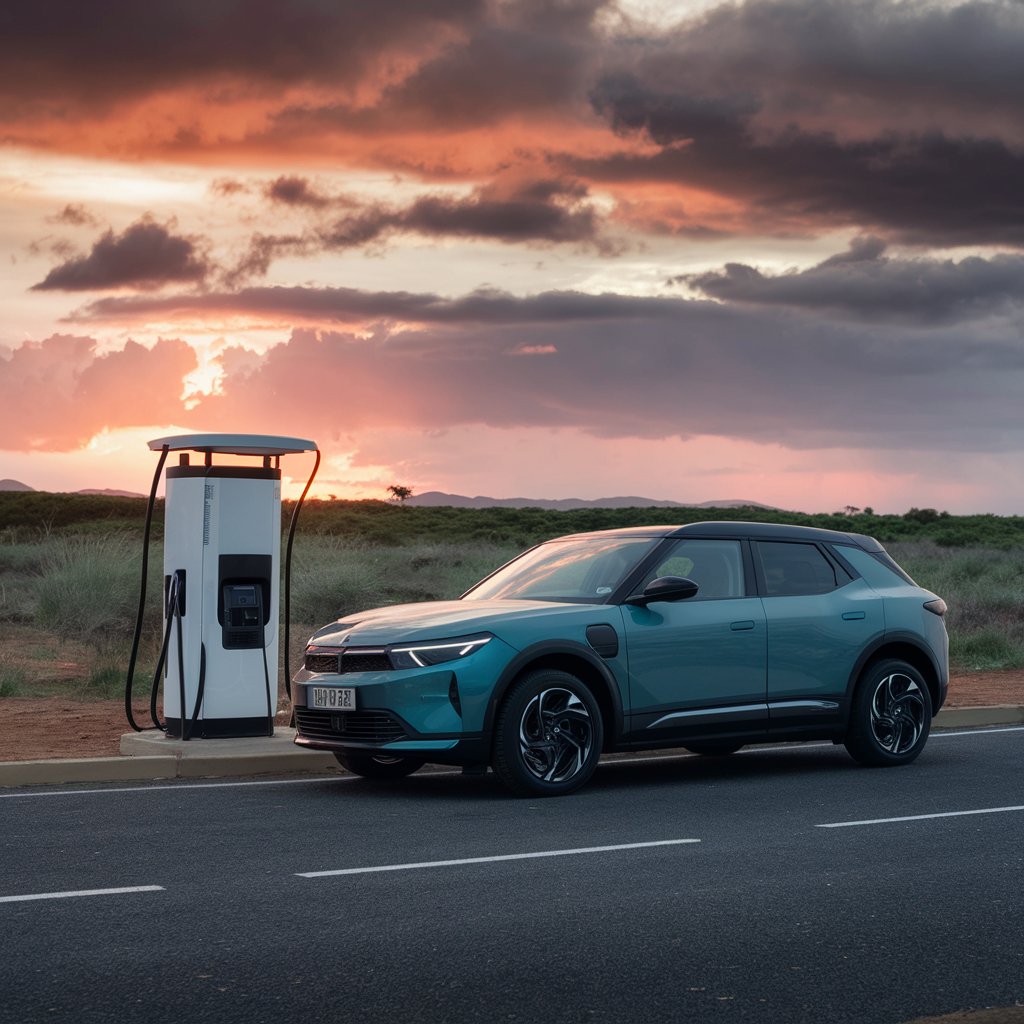As electric vehicles (EVs) continue to gain popularity worldwide, the development of charging infrastructure is a critical factor in their adoption. While regions like Europe, North America, and parts of Asia have made significant strides in expanding their EV charging networks, Africa, and Morocco in particular, face unique challenges and opportunities in this area. This article explores the current state of charging infrastructure in Africa, with a focus on Morocco, and discusses the steps needed to advance this crucial aspect of sustainable transportation.
The State of EV Charging Infrastructure in Africa
Electric vehicle adoption in Africa is still in its early stages, hampered by several factors including limited charging infrastructure, high vehicle costs, and lack of consumer awareness. However, there is a growing recognition of the need to develop a robust EV ecosystem to combat pollution and reduce dependency on fossil fuels.
- Limited Charging Stations
- Sparse Networks: Across most African countries, the number of charging stations is minimal, making long-distance travel in an EV challenging.
- Urban Concentration: Existing charging points are primarily concentrated in major cities, leaving rural and suburban areas underserved.
- Infrastructure Challenges
- Electric Grid Reliability: Many regions face unreliable electricity supply, which complicates the installation and maintenance of charging stations.
- Economic Constraints: Investment in EV infrastructure competes with other pressing economic needs, slowing down development efforts.
- Policy and Regulation
- Lack of Incentives: Few African governments provide substantial incentives for EV adoption or infrastructure development.
- Regulatory Framework: Inconsistent or non-existent regulatory frameworks can hinder private investment in charging infrastructure.
Morocco: A Focused Look
Morocco, as a leading country in renewable energy initiatives in Africa, holds potential for significant growth in the EV sector. However, its charging infrastructure remains underdeveloped.
- Current Infrastructure
- Few Charging Stations: Morocco has a limited number of public charging stations, with most located in major cities like Casablanca and Rabat.
- Private Initiatives: Some private companies and hotels have started installing charging points, but these efforts are still in the early stages.
- Government Initiatives
- Renewable Energy Goals: Morocco’s ambitious renewable energy goals, which include generating 52% of its electricity from renewable sources by 2030, align well with the adoption of electric vehicles.
- Pilot Projects: The Moroccan government has launched pilot projects to promote EV use, but these need to be scaled up significantly.
- Challenges
- High EV Costs: The high cost of EVs compared to conventional vehicles remains a barrier for widespread adoption.
- Awareness and Education: There is a need for greater public awareness and education on the benefits of EVs and the availability of charging infrastructure.
The Path Forward: Enhancing Charging Infrastructure
To create a conducive environment for EV adoption in Morocco and across Africa, several steps need to be taken:
- Government Policy and Incentives
- Subsidies and Tax Breaks: Offering subsidies, tax breaks, and other incentives for both consumers and companies investing in EV infrastructure can stimulate growth.
- Clear Regulations: Establishing a clear regulatory framework can attract private investment and ensure the consistent development of charging networks.
- Investment in Infrastructure
- Public-Private Partnerships: Collaborations between the government and private sector can accelerate the deployment of charging stations.
- Urban and Rural Focus: Expanding infrastructure beyond urban centers to rural areas is crucial for comprehensive coverage.
- Renewable Energy Integration
- Solar-Powered Stations: Leveraging Morocco’s abundant solar energy to power charging stations can reduce dependency on the grid and promote sustainable energy use.
- Microgrids: Implementing microgrid solutions in remote areas can enhance reliability and support EV charging needs.
- Awareness and Education
- Public Campaigns: Conducting public awareness campaigns to educate consumers on the benefits of EVs and the availability of charging infrastructure.
- Training Programs: Providing training for technicians and engineers to build and maintain EV infrastructure.
- Innovative Solutions
- Mobile Charging Units: Deploying mobile charging units can provide flexibility and address immediate charging needs in underserved areas.
- Battery Swapping: Exploring battery swapping technology as an alternative to traditional charging stations.
Conclusion
The journey to establishing a robust EV charging infrastructure in Africa, and Morocco specifically, is fraught with challenges but also ripe with opportunities. By leveraging government support, private investment, and innovative solutions, Morocco can pave the way for a more sustainable and electrified future. With the right strategies in place, the vision of widespread electric vehicle adoption in Africa can become a reality, driving the continent towards a cleaner, greener tomorrow.
